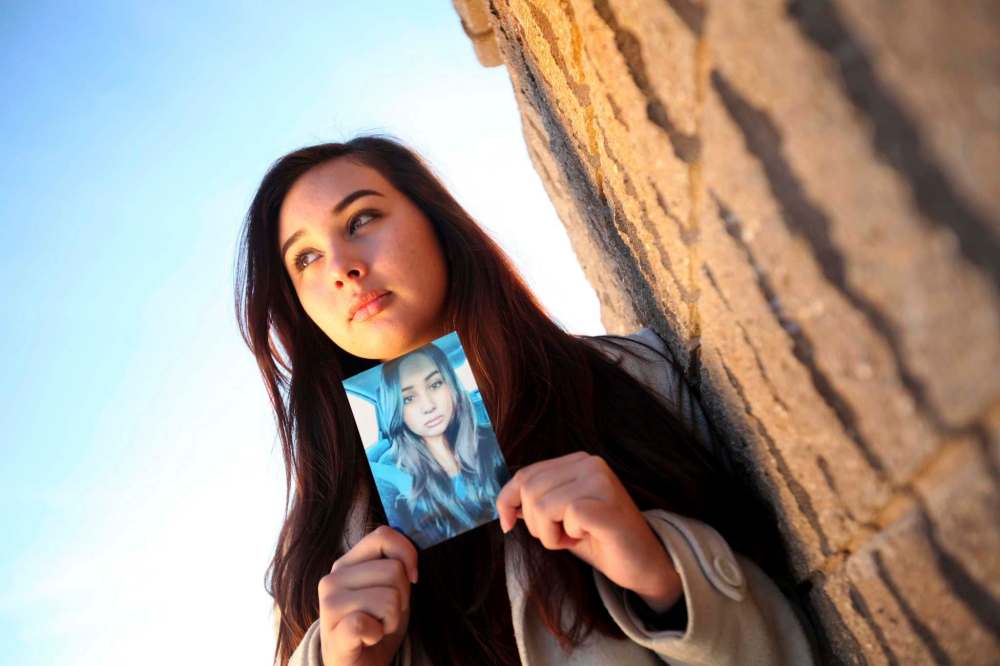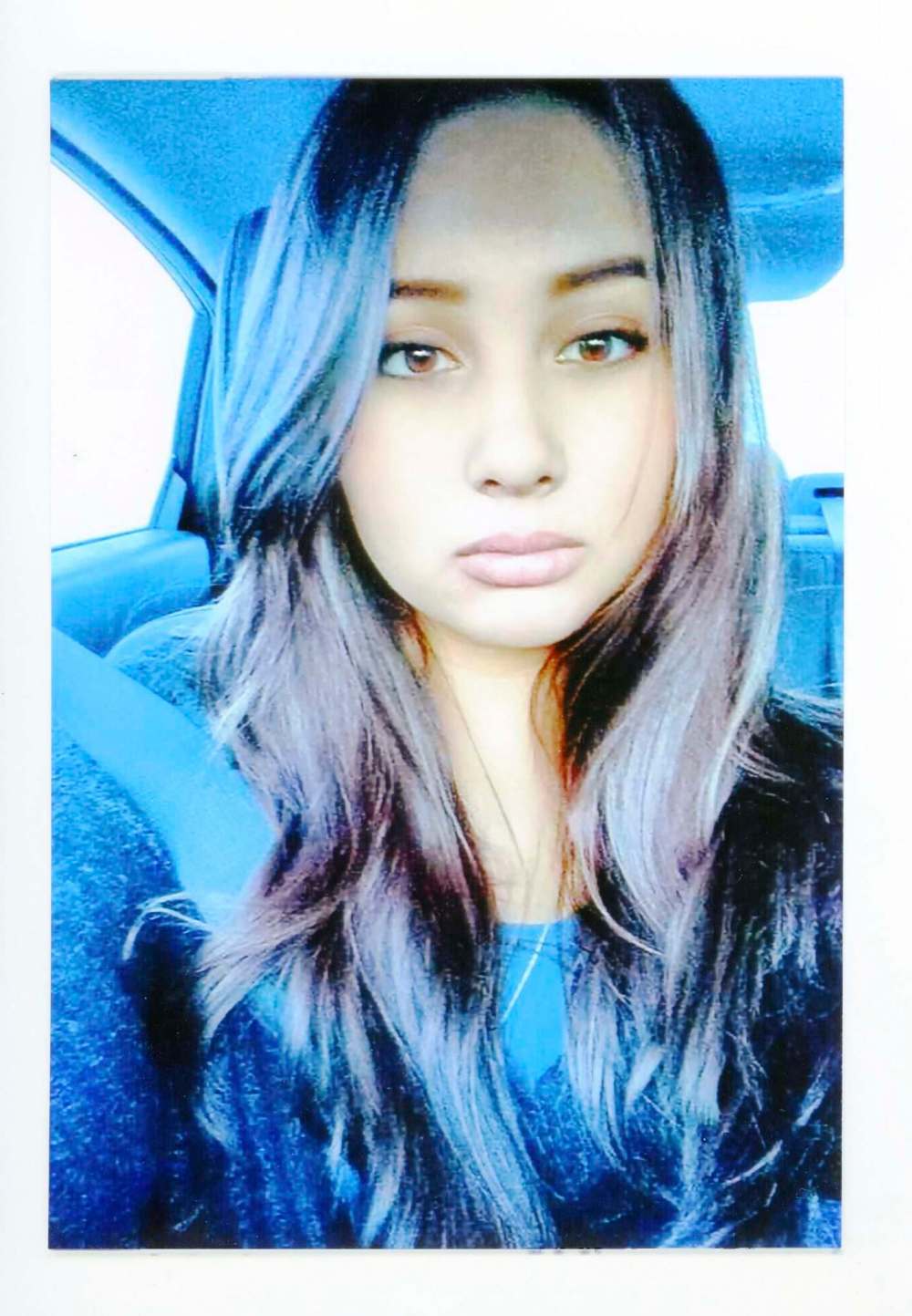Indigenous teen gives instructions to city police chief if she goes missing
Advertisement
Read this article for free:
or
Already have an account? Log in here »
To continue reading, please subscribe:
Monthly Digital Subscription
$0 for the first 4 weeks*
- Enjoy unlimited reading on winnipegfreepress.com
- Read the E-Edition, our digital replica newspaper
- Access News Break, our award-winning app
- Play interactive puzzles
*No charge for 4 weeks then price increases to the regular rate of $19.00 plus GST every four weeks. Offer available to new and qualified returning subscribers only. Cancel any time.
Monthly Digital Subscription
$4.75/week*
- Enjoy unlimited reading on winnipegfreepress.com
- Read the E-Edition, our digital replica newspaper
- Access News Break, our award-winning app
- Play interactive puzzles
*Billed as $19 plus GST every four weeks. Cancel any time.
To continue reading, please subscribe:
Add Free Press access to your Brandon Sun subscription for only an additional
$1 for the first 4 weeks*
*Your next subscription payment will increase by $1.00 and you will be charged $16.99 plus GST for four weeks. After four weeks, your payment will increase to $23.99 plus GST every four weeks.
Read unlimited articles for free today:
or
Already have an account? Log in here »
Hey there, time traveller!
This article was published 05/03/2016 (3567 days ago), so information in it may no longer be current.
Brianna Jonnie is an intelligent 14-year-old.
She’s an honour roll student, she isn’t involved in drugs or alcohol, she’s not a runaway, and she’s not involved with Child and Family Services. She has dreams of becoming a surgeon, lawyer or a police officer.
Brianna has everything to live for. So why does she believe she’s at a higher risk than her peers to go missing or be murdered? Why does she think few people would care if she went missing?

She said it’s because she is indigenous. She believes there are differences between how the community, the media and the police treat cases of missing indigenous girls.
She expressed those beliefs in a two-page letter to Winnipeg Police Service Chief Devon Clunis that included instructions on what to do if she goes missing. Her letter included a colour photograph of herself.
“If I go missing and the WPS has not changed the behaviours I have brought to your attention, I beg of you, do not treat me as the indigenous person I am proud to be,” Jonnie wrote.
“My mom needs me, and I want to have my future. And if I do go missing and my body is found, please tell my mom you are sorry. Tell her I asked to be buried in my red dress, for I will have become just another native statistic.”
Brianna wrote: “The colour of one’s skin, their socio-economic status, or whom their legal guardian is, should not determine the level of assistance and resources put in place to find them if they are missing and yet, it does.”
In an interview, Brianna said she worked on the letter last weekend, but she has been thinking about the issue for at least a couple of years. “It’s just what I have noticed, and it bothers me,” she said.
She points to cases of people who went missing: Tina Fontaine, Thelma Krull and Cooper Nemeth.
Tina, an indigenous girl who had a history of running away, was 15 when she disappeared Aug. 9, 2014. Her body was found in the Red River about a week later.
Krull, 57, went missing last July after leaving home to go on a morning walk. She remains missing.
Seventeen-year-old Cooper went missing last month after going to a house party. His body was found a week later and a man has been charged with murder.
Brianna said while information about Krull and Cooper was made public less than 24 hours after they went missing, the first request for the public’s help to look for Tina was four days after she was reported missing. In the cases of Krull and Cooper, hundreds of strangers pitched in to help search for them.
“It teaches the boys and men who discard girls in rivers, beat them in back lanes and drug them at parties that indigenous girls’ lives don’t matter — they won’t be missed. No one will look for them,” Brianna wrote to the chief.
“It teaches me my life does not matter.”
She admits she’s “not sure what needs to be done, but if someone goes missing, everyone, police included, should be out there the next day,” she said.
“I know they should just find a solution.”
Brianna said she hasn’t been a victim of violence, but she said she can’t go anywhere without men she doesn’t know either ogling her or approaching her.
She also sent copies of her letter — accompanied by her colour photograph — to others including Premier Greg Selinger and Winnipeg Mayor Brian Bowman.
Bowman said he will meet with Brianna next week.
“It is heartbreaking a young woman feels her life is not as valuable as others in the community, but she is also hopeful in that she is trying to do things in a positive way,” the mayor said.

“She is challenging the community, the media, the Winnipeg Police Service. She is challenging all of us to do more and a better job. We need more Briannas in the world. She’s asking all the right questions.”
Bowman said all Winnipeggers should feel they are valued and equal to each other.
“I think the community has come a long way, but we have a long way to go.”
Winnipeg police spokesman Const. Jason Michalyshen said the chief is away, but he knows about the letter and will meet with Brianna.
“It’s an incredibly compelling letter, and it brings up a lot of great questions,” he said. “It is quite amazing to see such a young person have passion for her community.
“It also shows that maybe we need to do a better job of educating the public about why certain investigations unfold the way they do.”
Michalyshen said sometimes the public is not told immediately that someone is missing because police haven’t been notified, the family doesn’t want the information released or because the person has a history of disappearing and returning.
“But if one 14-year-old girl is thinking like this, there are probably many others.”
Manitoba government spokeswoman Rachel Morgan said Nahanni Fontaine, the province’s special adviser on aboriginal women’s issues, will speak with Brianna.
Morgan said the province has a strategy on missing and murdered indigenous women and girls, including working directly with their families.
“It’s devastating to hear that this young woman is living with the fear of being targeted because she is indigenous,” Morgan said. “We share her concerns for young indigenous youth who need more protections and supports to stay safe.”
Amanda McCormick, Brianna’s mother, said she’s proud of her daughter and is concerned for her safety.
“She definitely put her heart into this letter,” she said. “You don’t want something to ever happen to her.”
Brianna said she hopes her letter makes a difference, not just in Winnipeg, but elsewhere.
“I wanted to start local,” she said. “I sent it to who I did because when you want change to happen, you don’t think big at first, you start small.
kevin.rollason@freepress.mb.ca

Kevin Rollason is one of the more versatile reporters at the Winnipeg Free Press. Whether it is covering city hall, the law courts, or general reporting, Rollason can be counted on to not only answer the 5 Ws — Who, What, When, Where and Why — but to do it in an interesting and accessible way for readers.
Our newsroom depends on a growing audience of readers to power our journalism. If you are not a paid reader, please consider becoming a subscriber.
Our newsroom depends on its audience of readers to power our journalism. Thank you for your support.
History
Updated on Saturday, March 5, 2016 11:28 AM CST: Fixes typo in cutline.


